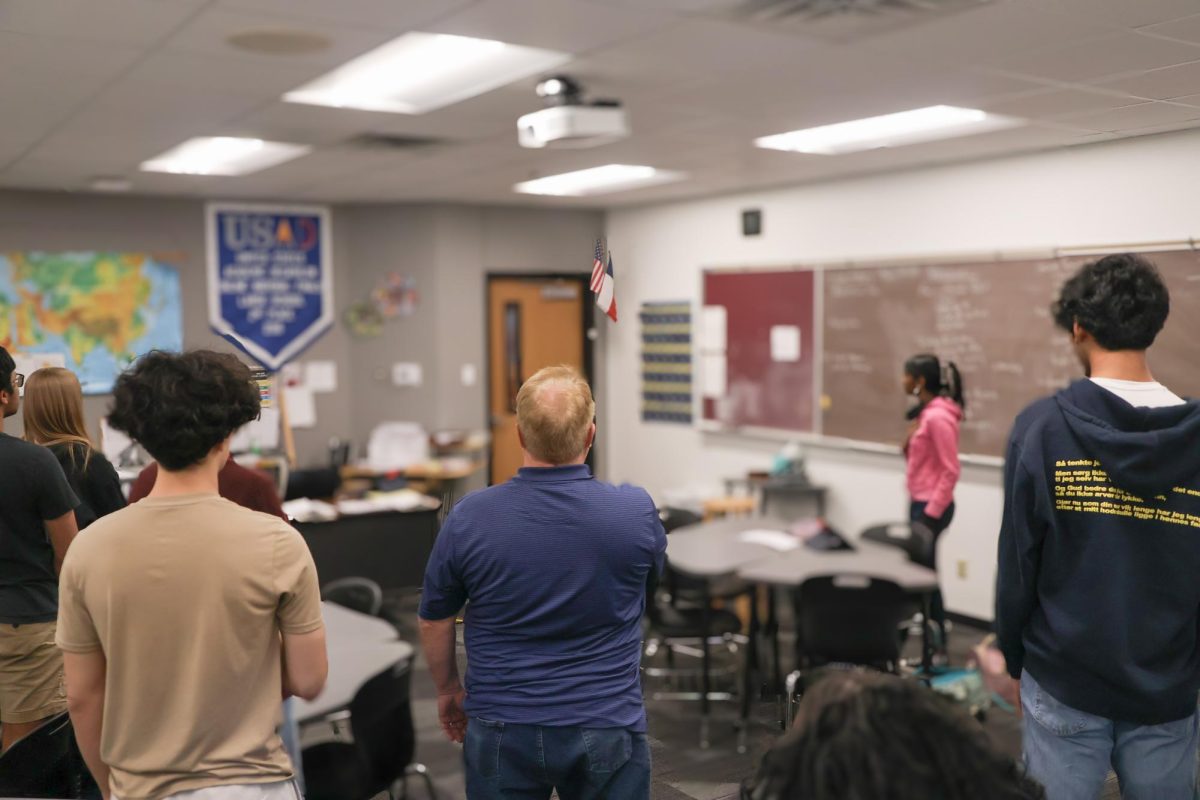There is nothing quite as American as apple pie, the “Star-Spangled Banner” and… limitless loyalty?
Every day, without fail, at 2:25 p.m. on the dot, the entirety of Coppell High School will stand up to recite the Pledge of Allegiance for both the American and Texas flags. If you ask Texas Attorney General Ken Paxton, this is not just an intermission from your classes but a patriotic duty that can get you expelled for refusing to participate.
Boy, would he be disappointed to enter a CHS classroom.
Many CHS students do not participate in the pledge. Sure, many of them stand and face the flag, but fewer will actually pay attention, and even fewer will recite it.
In and of itself, refusing to recite the pledge is not necessarily a bad thing when it is done purposefully. However, I believe it is wrong that a large reason for this lack of participation is simply inattentiveness to the true meaning of the Pledge.
Of course, that is a massive generalization. There are plenty of CHS students who understand that, by reciting the Pledge, they are stating their loyalty to the United States and our state, yet they still choose to sit in their chairs.
But, what does the Pledge really mean? Does reciting those 48 words equal a proclamation that you agree with every action taken by the United States/Texas? Does it mean you would support every value that the Pledge of Allegiance states?
To me, it means pledging your loyalty to creating a better America. Sure, America is not perfect. It has flaws, struggles and issues at every corner. But, to use the words the Pledge of Allegiance ends with, I believe it is pledging to a republic that promotes “one nation, under god, indivisible, with liberty and justice for all,” even if we sometimes fall short. When we say this, we promise to participate in the constant pursuit of those principles, even if we may disagree over how to achieve them.
Because I interpret the Pledge of Allegiance in that way, the Pledge having a different meaning to every American is a great thing… but at least think about that meaning and purposefully decide whether or not to recite it.
Obviously, a big part of why students do not participate is peer pressure: if most students do not, no one else will.
Last year, I campaigned for a local candidate. Every single time I knocked on a door in Coppell, I was treated with kindness and respect regardless of the homeowner’s political opinions. That is what makes our community and schools so welcoming. Unlike Keller ISD, whose school district has been embroiled in culture war controversy, Coppell ISD has managed to avoid political controversy until the recent lawsuit.
Maybe that is a big part of why we are not inclined to ponder how we spend two minutes on a random afternoon. I think about how (for some reason) the “th” in “asthma” is silent. But, it could also be because this simply “does not matter” in the grand scheme of things.
The meaning that you give the Pledge, even if it differs from your friends, is what you should remember most. It affects how you understand current events, discuss decisions made in government and, perhaps most importantly, vote.
Regardless of whether you believe the Pledge of Allegiance is a glorious and patriotic duty or the first step to a “1984”-esque loyalty cult, it’s best to at least think about that during this state-mandated minutes of pledges.
Follow @CHSCampusNews on X.











